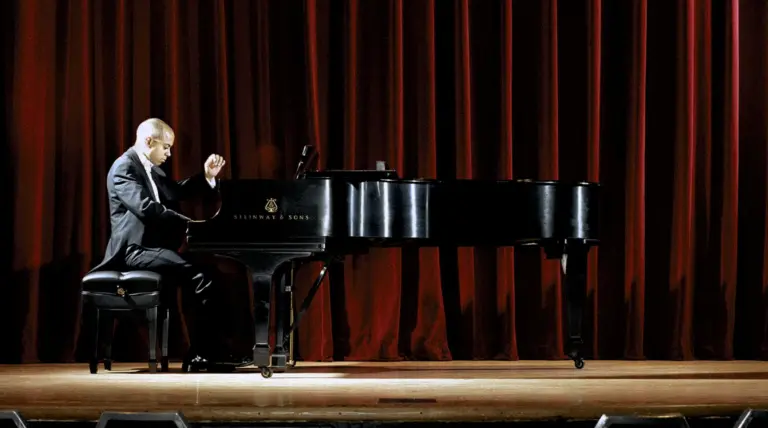By The Rev. Marek Zabriskie
The city of Jerusalem is 5,000 years old. What began as provincial town in Judea grew into a vibrant city, which has been attacked 52 times, captured 44 times, besieged 23 times, and completely destroyed on two occasions. If any city can claim to be a resilient place of hope and resurrection, it is Jerusalem.
Eighteen Christ Church Greenwich pilgrims and four friends recently returned from a pilgrimage to Israel and Jordan. It was a once-in-a-lifetime opportunity. Political protests erupted while we were there, but fortunately, we were not impacted.
In his book Jerusalem: the Biography, Simon Montefiore, writes, “Jerusalem is the house of the one God, the capital of two peoples, the temple of three religions and she is the only city to exist twice – in heaven and on earth…” Prophets, patriarchs, Abraham, David, Mary and Joseph, Jesus, Mohammad, and Saladin have strolled these city streets.
Jerusalem is the city of the People of the Book. The Bible is the chronicle of the city. As the Bible became the universal book, Jerusalem became the universal city. Kings around the world modeled themselves on David and foreign people viewed themselves as the new Israelites.
Today, Jerusalem is home to Arab, Coptic, Russian, and Armenian Orthodox Christians; Sunni and Shiite Muslims; Sephardic, Ashkenazi, Orthodox, Reform, Reconstructionist, and secular Jews; Franciscan, Dominican, and Benedictine monks and nuns; Protestants, Roman Catholics, and Latin Rite Christians; Georgians, Serbs, Copts, and so on. Each group protects its own turf.
It has been said that nothing makes a place holier than the competition with another religion. Perhaps that is why Jerusalem has remained holy for so long. Each group wants a piece of Jerusalem, and some want it all for themselves.
Orthodox, Reform, liberal, and secular Jews are clashing over major issues in Israel. Six different Christian groups vie to control the Church of the Holy Sepulchre, which was built over the site where Jesus was buried and resurrected. As a result, a Muslim holds the key and opens and closes the church each day in order to keep the peace.
For all of its faults, the phrase “Holy City” fits Jerusalem better than any other city in the world. No city on earth more closely links heaven and earth. Half of the world’s population find their spiritual roots in Jerusalem for it is a focal point for all three Abrahamic religions.
While it has never been easy to be a Christian in Palestine, it is harder now than ever. In 1922, Christians accounted for 27 percent of Palestine’s population. Today, they represent just two percent of Israel’s population. Christians go unnoticed, unsupported, and seem almost invisible due to their small numbers. The Israeli government makes it very hard for non-Jews in Israel.
Despite its tensions and imperfections, four million pilgrims flock each year to Jerusalem. Christians are by far the largest group. They come because this is where the greatest story ever told reached its climax. What occurred during Jesus’ final three days in Jerusalem during the Passover of 33 A.D. changed our world forever.
That was the week when two processions entered the Holy City. Jesus entered Jerusalem from the east. Pontius Pilate entered from the west. Jesus rode a humble donkey. Pilate rode a war horse. When a king went to war, he rode a horse. When he came in peace, he rode a donkey. The symbolism was not lost on the crowds.
Jesus proclaimed the Kingdom of God. Pilate proclaimed the power of empire. Pilate’s soldiers carried banners with gold imperial eagles, which offended the Jews. Jesus’ followers shouted “Hosanna! Lord, save us!” and cast palm branches at his feet. These two processions were headed for a collision. Our pilgrims retraced Jesus’ Palm Sunday procession.
One the night before he died, Jesus gathered his disciples in the Cenacle or Upper Room to share a final meal. We prayed and sang a hymn in that very room. Soon after, as Jesus prayed in the Garden of Gethsemane, Roman soldiers to arrested him, and the disciples scattered.
Jesus’ rapidly rising popularity, his new religious teaching and his overturning of the tables of the moneychangers threatened the Roman authorities. His teaching confronted a whole web of influences and powers that governed Judaism, the Temple, the class systems, hierarchies, economic disparities, and rigid religious constraints. Jesus upset the “system”, and powerful people wanted to curtail his message before things got out of hand.
Each of the gospels depicts the final three days of Jesus’ life in a slightly different way. But they all agree that Jesus willingly offered himself as a sacrifice to atone for the sins of the world and conquered death. If we harbor a belief that there is more to life after we die and that we will see our loved ones again, it is because of what occurred in Jerusalem in 33 A.D. No event in history has offered more hope to more people in more places.
For me, the highlight of our pilgrimage occurred when our group had an hour-long private meeting with the Archbishop of Jerusalem Hosam Naoum. He explained that in 1922, Jerusalem had 40,000 Christians. Today, it has only 8,000 Christians.
“In the last ten years, we have seen an escalation of violence by fringe groups – mostly Jewish Settlers,” he told us, adding, “It has made it very difficult to be a Christian here. We have lost fifty percent of our Christians in Iraq and Syria because of the recent wars.” When I asked him what gives him hope in the face of such challenges, he said, “The Resurrection gives me hope.”
During these coming days, we are invited to walk with Jesus in all the living color and gory detail as Holy Week unfolds. We will sense the gathering storm, the threatening tension, and the immanent death, and we will wait to see what God can do with the very worst that humanity can carry out.
I urge you to keep company with Jesus during this week as you carry your own cross and wrestle with things that are dark and difficult or wrestle with death and loss. Now is the time to invite the great alchemist God to transform your desolation into your consolation, for God has the power to bring new life.



